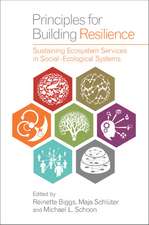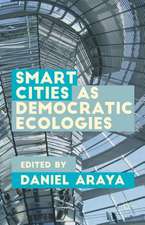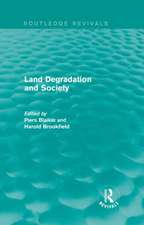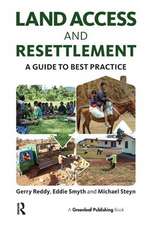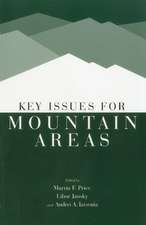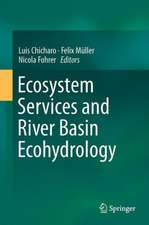Transition Management for Sustainable Development
Editat de Kazuhiro Ueta, Yukio Adachien Limba Engleză Paperback – 3 mar 2014
This book examines the idea of sustainable development and its role within environmental governance and policy. In order to realize sustainable development that goes beyond the realm of models or socioeconomic visions, the authors posit it is necessary to use methodology that addresses issues at the global, national, regional, and local levels, and their multilayered, mutual relationships. The book uses case studies to illustrate the problems of sustainable development, how they have been addressed, and the important lessons that can be learned from these experiences.
The book clarifies the issues of transition management for sustainable development by taking into account the idea of human development for environmental governance. Although the concepts of human and sustainable development overlap and share many arguments against existing mainstream development initiatives, it is important to look at the ways in which the two concepts can be integrated or are consistent with each other. This book combines the two concepts and discusses how to make sustainable human development operational. Finally, it looks at how and why transition toward multilevel environmental governance takes place and the challenges for the future.
The book clarifies the issues of transition management for sustainable development by taking into account the idea of human development for environmental governance. Although the concepts of human and sustainable development overlap and share many arguments against existing mainstream development initiatives, it is important to look at the ways in which the two concepts can be integrated or are consistent with each other. This book combines the two concepts and discusses how to make sustainable human development operational. Finally, it looks at how and why transition toward multilevel environmental governance takes place and the challenges for the future.
Preț: 315.66 lei
Nou
Puncte Express: 473
Preț estimativ în valută:
60.41€ • 65.60$ • 50.74£
60.41€ • 65.60$ • 50.74£
Carte tipărită la comandă
Livrare economică 22 aprilie-06 mai
Preluare comenzi: 021 569.72.76
Specificații
ISBN-13: 9789280812343
ISBN-10: 9280812343
Pagini: 380
Dimensiuni: 152 x 229 x 20 mm
Greutate: 0.53 kg
Editura: Brookings Institution Press
Colecția United Nations University Press
ISBN-10: 9280812343
Pagini: 380
Dimensiuni: 152 x 229 x 20 mm
Greutate: 0.53 kg
Editura: Brookings Institution Press
Colecția United Nations University Press
Notă biografică
Kazuhiro Ueta is professor of environmental economics at the Graduate School of Economics, Kyoto University, Japan. Yukio Adachi is professor emeritus, Kyoto University, and professor of public policy in the Faculty of Law, Kyoto Industrial University, Japan.
Descriere
This book examines the idea of sustainable development and its role within environmental governance and policy. In order to realize sustainable development that goes beyond the realm of models or socioeconomic visions, the authors posit it is necessary to use methodology that addresses issues at the global, national, regional, and local levels, and their multilayered, mutual relationships. The book uses case studies to illustrate the problems of sustainable development, how they have been addressed, and the important lessons that can be learned from these experiences.
The book clarifies the issues of transition management for sustainable development by taking into account the idea of human development for environmental governance. Although the concepts of human and sustainable development overlap and share many arguments against existing mainstream development initiatives, it is important to look at the ways in which the two concepts can be integrated or are consistent with each other. This book combines the two concepts and discusses how to make sustainable human development operational. Finally, it looks at how and why transition toward multilevel environmental governance takes place and the challenges for the future.
The book clarifies the issues of transition management for sustainable development by taking into account the idea of human development for environmental governance. Although the concepts of human and sustainable development overlap and share many arguments against existing mainstream development initiatives, it is important to look at the ways in which the two concepts can be integrated or are consistent with each other. This book combines the two concepts and discusses how to make sustainable human development operational. Finally, it looks at how and why transition toward multilevel environmental governance takes place and the challenges for the future.



